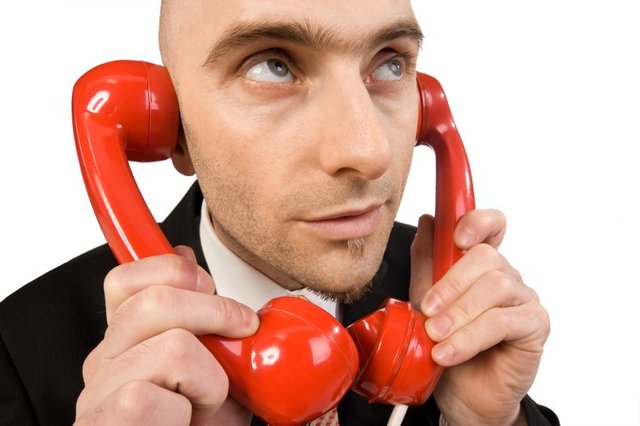What I Learned about the Power of Storytelling while Working as a Professional Scam Artist
One of the first clues to the fact that I was meant to be a storyteller came several years ago while I was at work, with two phones pressed against my cheeks as I did my best to be two completely different people in two conversations at the same time.
On one line I was pretending to be a stressed out sales clerk in a store trying to resolve a customer complaint through our corporate help line. On the other line I was pretending to be an angry customer with a thick and arguably racist chinese accent threatening to cancel my contract if they didn't give me the offer I was promised by the store clerk (yes the same clerk I was pretending to be on the other line).
I didn't realize it back then, but the reason why I was able to do jobs like these and be able to keep things straight without breaking character or saying something that would have compromised my little scheme was because I understood the STORY I was telling to the corporate agents on the other ends of those phones.
I was crafting a story - one that would weave together on both ends to create a specific effect - which in this case was to convince two corporate agents to go against their training and company policy in order to help out two people in a bad situation (Even though I was playing both of those people).
I understood then that there was a power behind storytelling that was able to cut through people's normal thought processes and to make new decisions based on the story and how they related to it. And I hated myself for the way I was abusing this technique.
It was only years later that I would discover that storytelling wasn't just a tool that could be used for evil schemes - but a tool that could be used to heal, to transform, to educate, to reach past the normal resistances, justifications, and long standing beliefs people would hold on to - and to engage a deeper part of ourselves and each other and do the things we would normally never do. Things such as forgive ourselves and each other for pains we have been carrying. Things such as understanding, perhaps for the first time, the pains and the experiences of others that we previously judged. Things such as seeing ourselves and each other in a completely new way that wouldn't have been possible if we only held on to our existing notions.
Long after I left that job I found myself continuing to use the power of storytelling. But instead of crafting clever stories in order to convince people to do things to profit the company I was working for, I found myself using storytelling to MAKE SENSE of things in life that troubled me. Putting things into perspective and getting deep with myself, my goals, and becoming self-honest with my fears and weaknesses allowed me to transform the stories in my own head that I had been repeatedly telling myself. Stories that - like the clever little tales I used to spin at my old job - were having an affect on the way I was making decisions and acting in ways that were not actually best for me.
Later on as I started to work with people one on one who would tell me their life stories and about the things they struggled with, I found myself using storytelling to help them MAKE SENSE of their own issues in a way that empowered them to no longer see themselves as victims, but as the authors of their own story.
Storytelling's true potential is not about the influence you can wield against others. Its true potential is found in the ability to shape new understanding, to create new connections, and to create better worlds by changing the existing stories in our heads so that we can begin doing things we never thought we would be capable of - and it is the storyteller's responsibility to live by a guiding principle - a code of honor - to always ensure that the stories we tell are coming from a place of authenticity and self-honesty, and that our reasons for telling the stories that we do are not about personal gain or self-interest, but for the upholding of the sacred responsibility that comes with understanding the creative power of our words, being accountable to the words we speak, and for the world we create as a result of the stories we tell ourselves and to others.
